


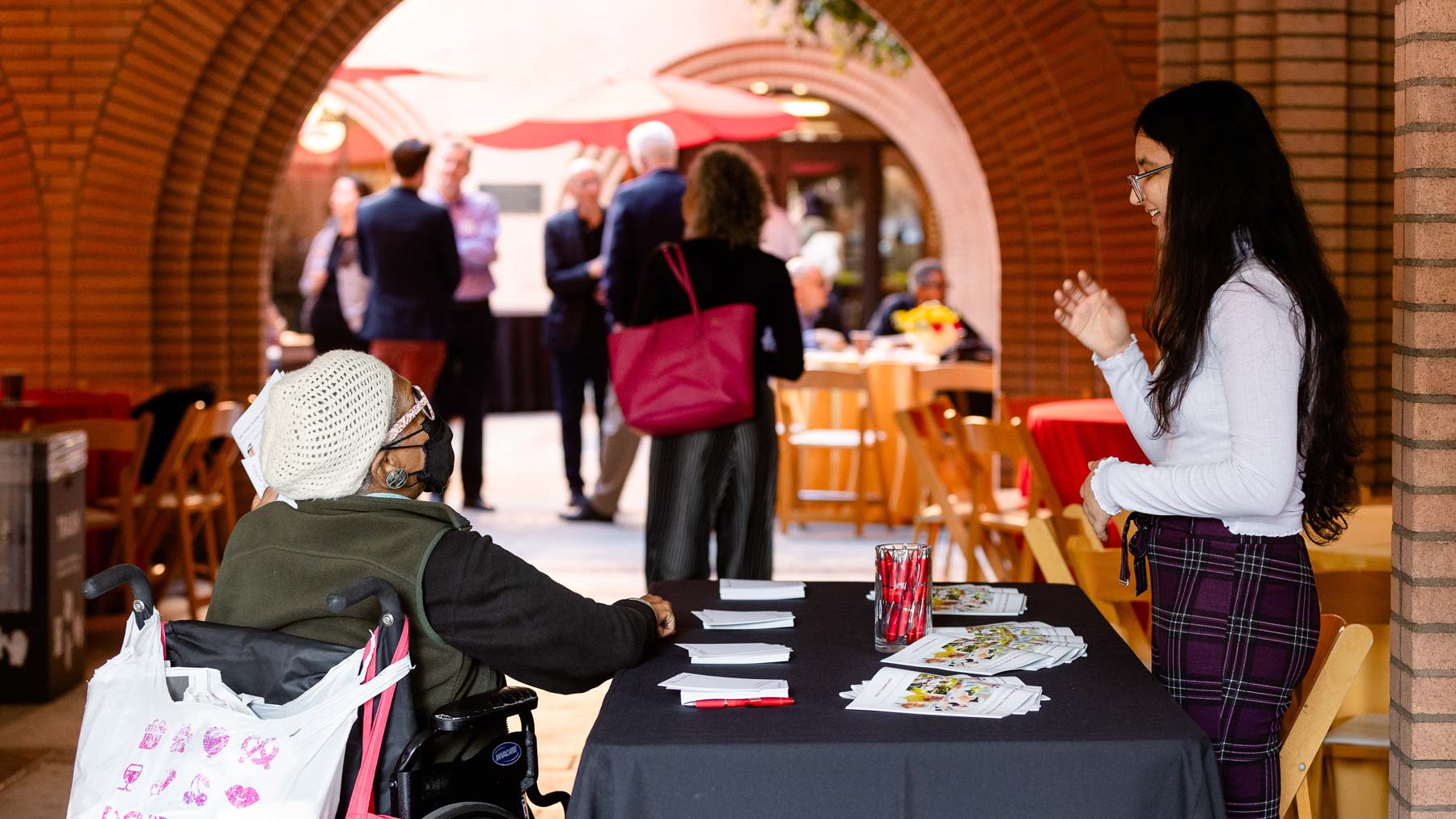
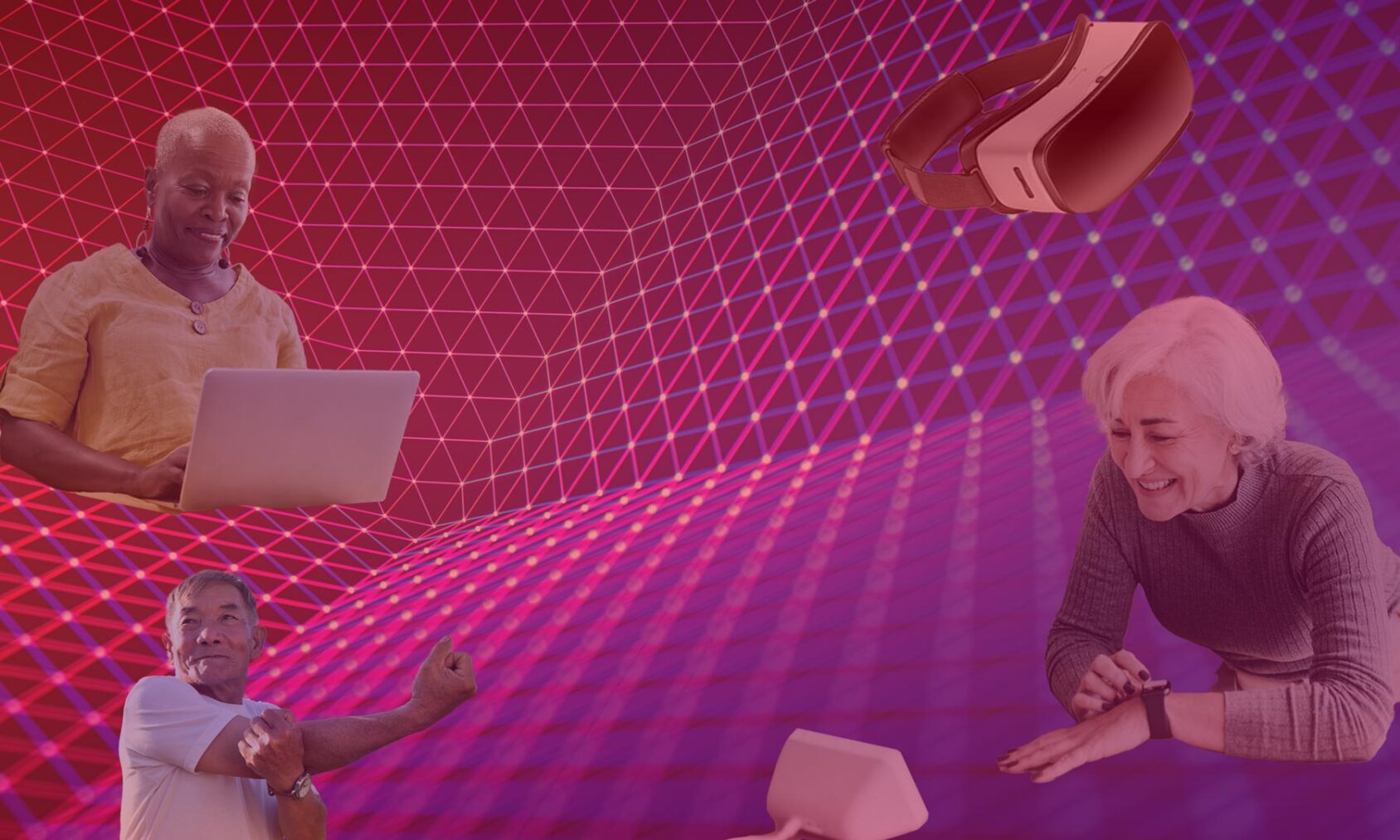
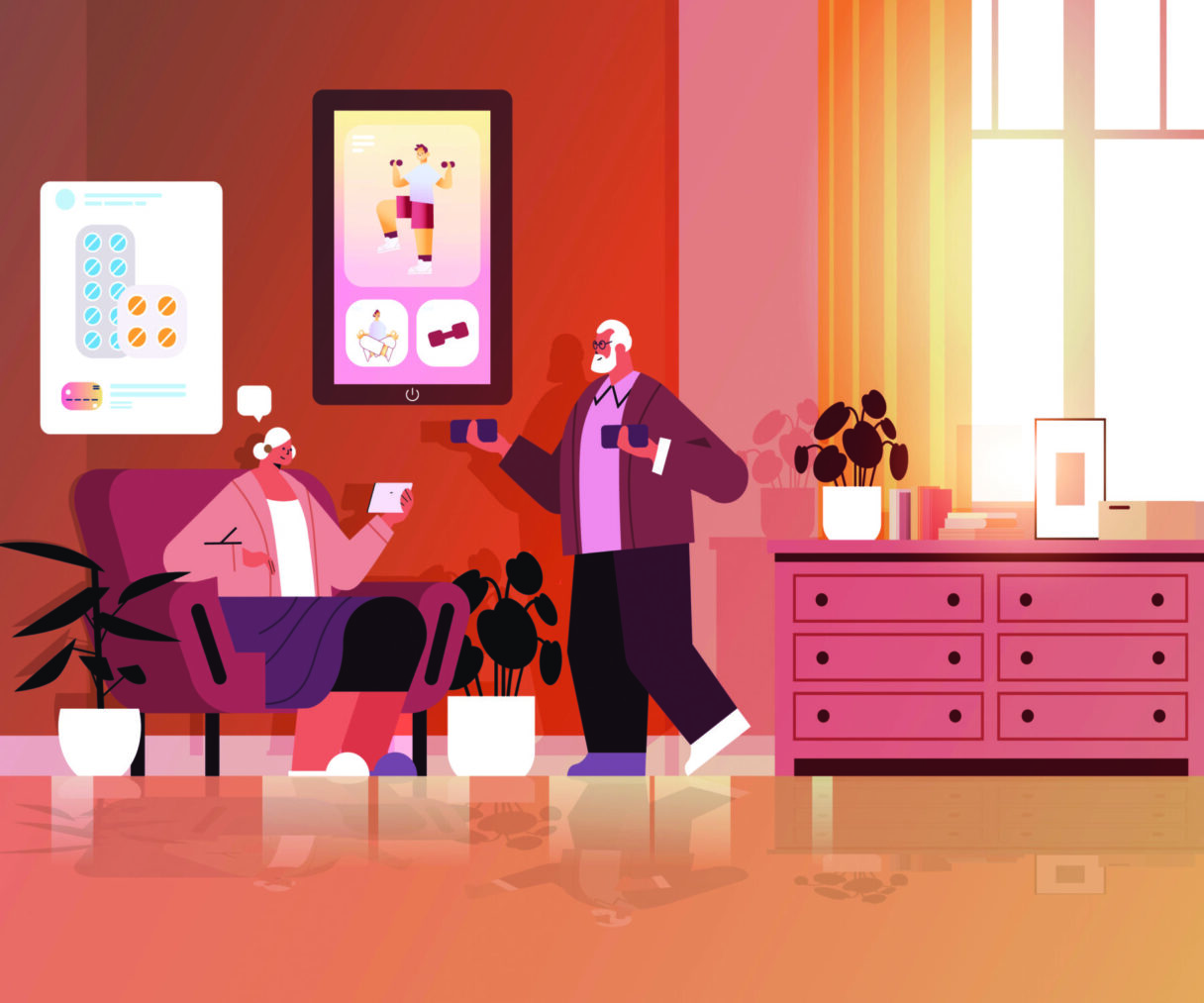
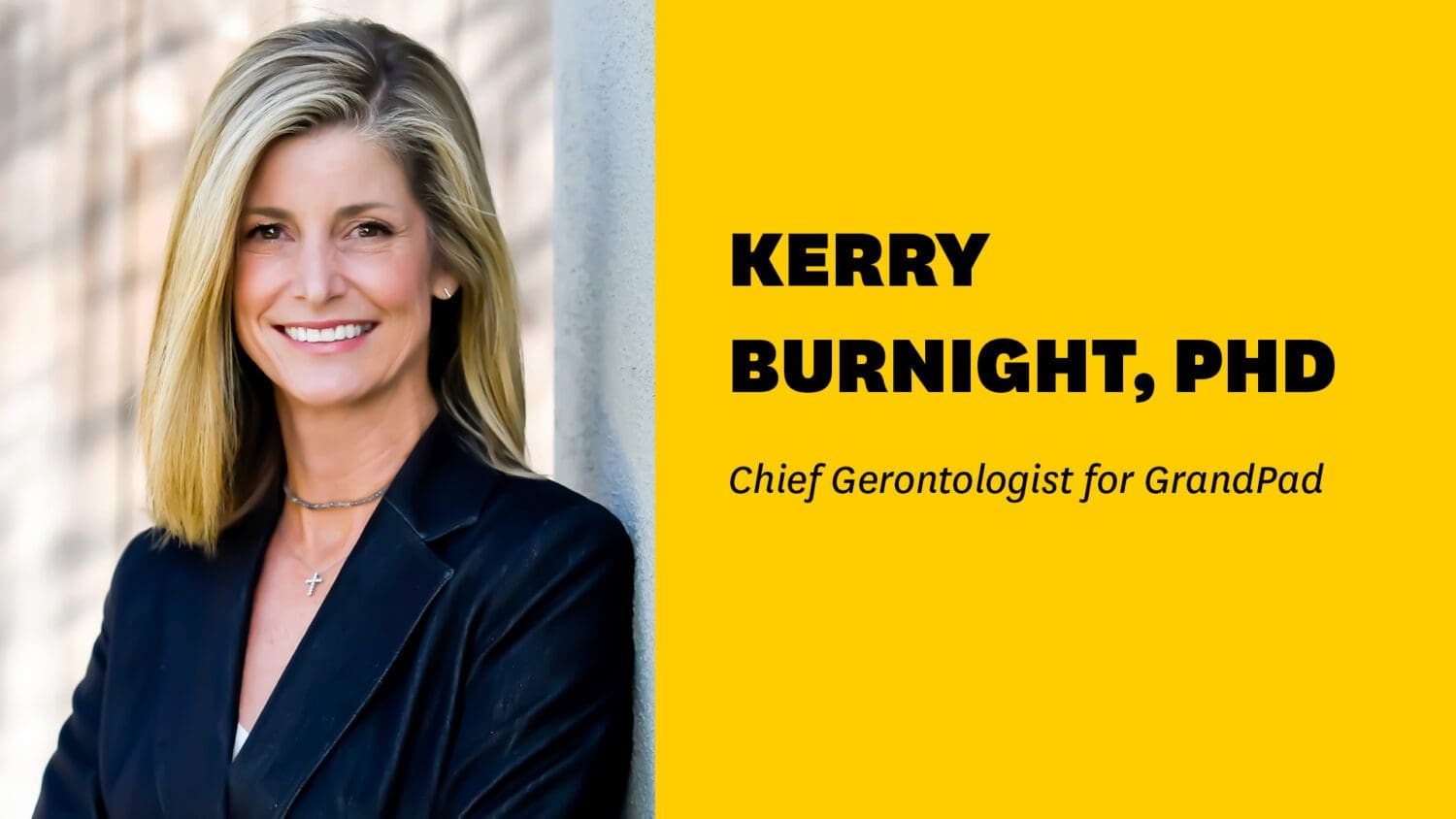
Dr. Kerry Burnight is the chief gerontologist at GrandPad, the creators of an internet-connected tablet designed specifically for seniors. She spoke to us about how the device aims to combat loneliness and abuse and about the sense of purpose that powers her gerontology career.
On being a gerontologist
“To this day, if anybody asks me what I do I say I’m a gerontologist // a person who studies aging. And our goal is to try to make aging a better experience for all of us. And then people are right on board. So I think there’s like a million different ways to express your gerontology ness. And I honestly feel so like the world is the oyster of undergrad master’s and PhD gerontologist and the only thing that will hold you back is not going for it.”
On using technology to address loneliness
“And so, all things being constant being lonely or socially isolated would put you at greater risk for elder abuse and exploitation, but also at significantly greater risk for cognitive impairment for stroke for heart disease and even mortality. So you’re 25% more likely to pass away than those who are not lonely and something. //And so I was thinking, gosh, you know, maybe technology could help us.”
On providing a vulnerable senior with a GrandPad
“He was able to connect with all of us but without any of the scammers are perpetrators and so he was a guy who listened to jazz music and he loved to listen to it on his GrandPad and we did all these video calls and the reason it was so helpful is because it was so different.”
On considering seniors in technology research and development
“Standard technology creates technology targeted and built for those in their 20s and 30s// It was never designed intelligently and to honor you to honor your autonomy. //Many organizations are all about “training seniors” and it’s so silly. If you even take one step back and you think, don’t train them. It’d be like saying let’s train people to wear size two pants. No, you need to make size six pants and size eight pants and size 20 pants not shove people into the tiny pants.”
“Einstein says that the greatest sophistication is simplicity and it’s true, like the hardest thing in the world that you can do is to create something simple and it’s not because seniors are less than. It’s because we have listened. The best thing of my job is that I employ a group of seniors ages 86 to 106 who are called our grand advisors and every step of the way. It is just by listening of what matters and what doesn’t matter to people.”
On the flexibility of a gerontology degree
I say you can literally do anything you’re interested in because aging is living// My aspect now is human connection and technology. But, if you’re interested in food, you’re interested in transportation, if you’re interested in entertainment…basically, in my opinion, any facet of being a human in this time of demographic revolution needs a gerontologist to really be thinking at it in a systematic way from what it means from an aging perspective.
On the importance of stepping up to help older adults
“All you have to do is spend time with older adults and then you realize you don’t have the luxury of being shy because it’s not about you, it’s about what you can do to serve.
And actually it was a senior who told me that one time I was speaking, there was a crowd of 1000 and I was getting nervous. And so this older person said to me, ‘you need to get out of your way’. And I got really struck me that I was the one like I’m scared to talk in front of people. I don’t want to, blah, blah, blah. Get out of your way because if you’re going to help aging and our own aging, then you better get to work.”
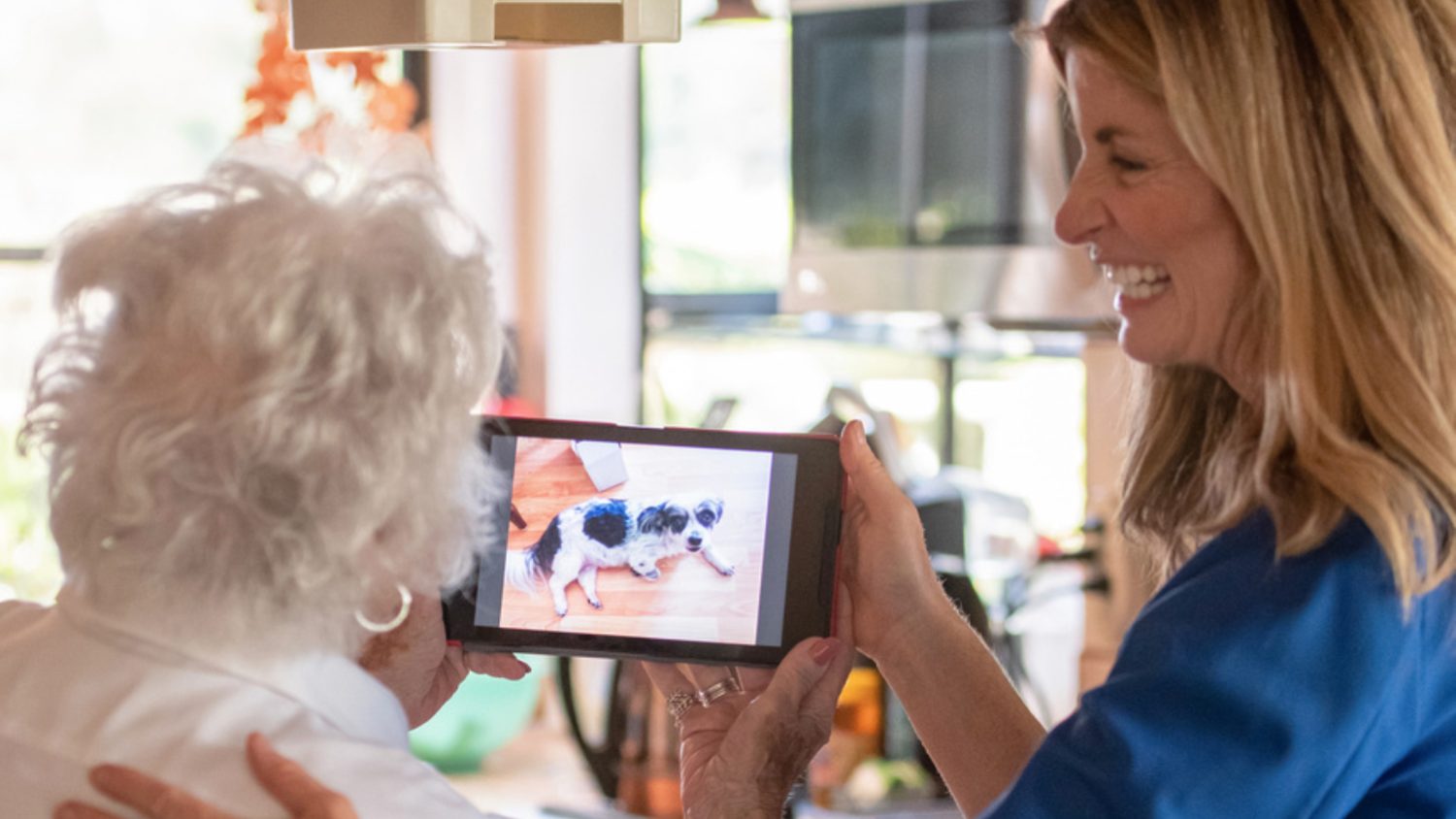
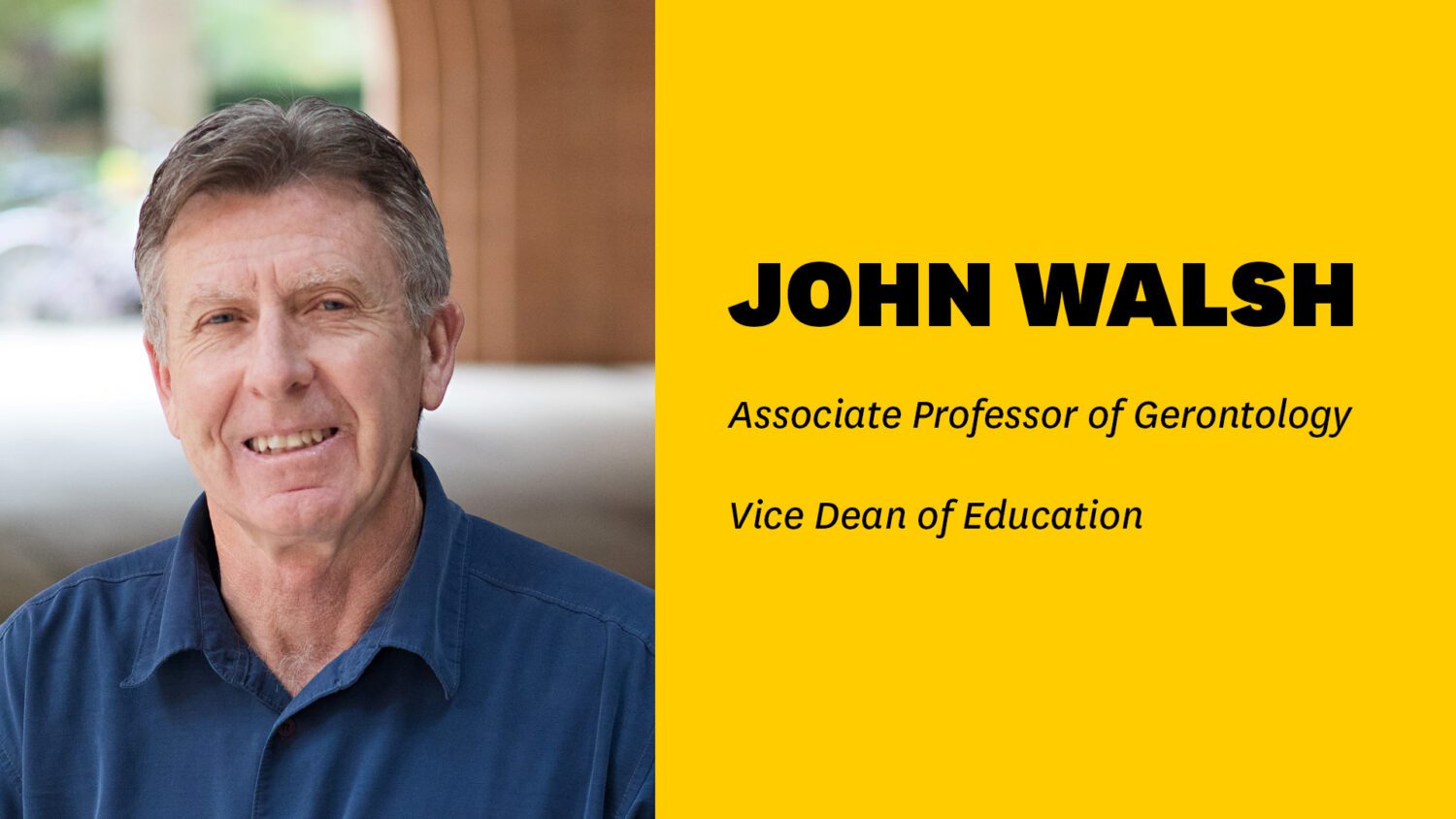
Professor John Walsh, vice dean of education at the USC Leonard Davis School joins Professor George Shannon, holder of the Kevin Xu Chair in Gerontology for a conversation on how teachers and students can make the most of online instruction and discuss how our life experiences can help us meet this challenging moment in time, both in the classroom and outside of it.
On isolation
Many students are feeling isolated right now and it’s obviously forced isolation and they just want to connect. The premed class I’m teaching right now, I have 50 students. And, and so here we are, two weeks into the semester and class ends at the hour 50-minute mark, and I’m having, 10 to 15 students stay afterward just to hang out and, talk about anything. And they just want to feel connected and, that’s a good thing because we got to help them through this.
On always learning
I always tell my students that I’ve never stopped being a student and that I always want to keep learning. And, so I will deliver a lecture, we’ll get centered on a topic and philosophically, I know from my reading and from looking at websites or watching videos about how what we’re discussing applies to furthering society or helping you in the workplace. But I love hearing the actual application from students where they’re down, boots on the ground, and they’ve experienced this. And they may even say,” those guideline or those principles are all good, however, in my experience… ” And, and then you put that in your back pocket… and then you use that in future lectures. I’m constantly learning and I tell the students,, I don’t know everything and I really want to learn from you.
On online classrooms:
Well, I think this is a game-changer. It was forced down our throats with a pandemic, but this is a game-changer. We, as a program have always been a leader at USC in terms of online education and we can’t stop being a leader. We just got to keep up on it. These platforms do offer a level of interactivity that we weren’t utilizing before.
On collaborative exams
I was just so amazed and so excited watching the active learning that went on during these collaborative exams. I know now that when we are back in session, // I’m going to be sitting there in the auditorium, I’m going to break people up into groups of six or seven, and they’re going to do the collaborative exam right there in the auditorium because it’s, I think it’s a really cool way to learn.
On his transition from elevator repairman to successful actor to USC professor
I was 55 years old. I didn’t have an undergraduate degree. So I spent two years in undergrad getting my undergraduate degree because I had hundreds of units where they were scattered all over in different things that I had touched upon. And then I went into the master’s program and did that in two years and was accepted into the PhD program. And so yeah, so that’s a long-winded way of saying there are, there are lots of things that you can do that come to an unexpectedly. I always say, if someone opens a door for you, don’t slam it in their face, go walk in and see what’s going on, because it might be an opportunity that can change your life in a very positive way as it did for me. I had four kids and a couple of wives and lots of bills and, and I survived all of that because I didn’t turn my back on something that I had never thought of before.
If something presents a change or a mode that you’re not expecting, it may be something that can lead you to something that’s even more exciting that gives your life more meaning. People ask me if I’m thinking about retiring and I’m astonished. Of course, I’m, first of all, astonished that I’m 80 years old, but secondly, I’m further astonished that anyone would think that I would ever consider retiring as long as I have my faculties about me and I’m able to perform. Because life is an endless performance as long as it lasts.
On online classes
in some ways, from my perspective, I like Zoom because I have on the screen the 40 or 50 students, so I may have in class and I can pick them out and ask them specific questions instead of being in the auditorium where they’re all trying to hide in the back of the room. And so I, I find there are some really some positives from this experience.
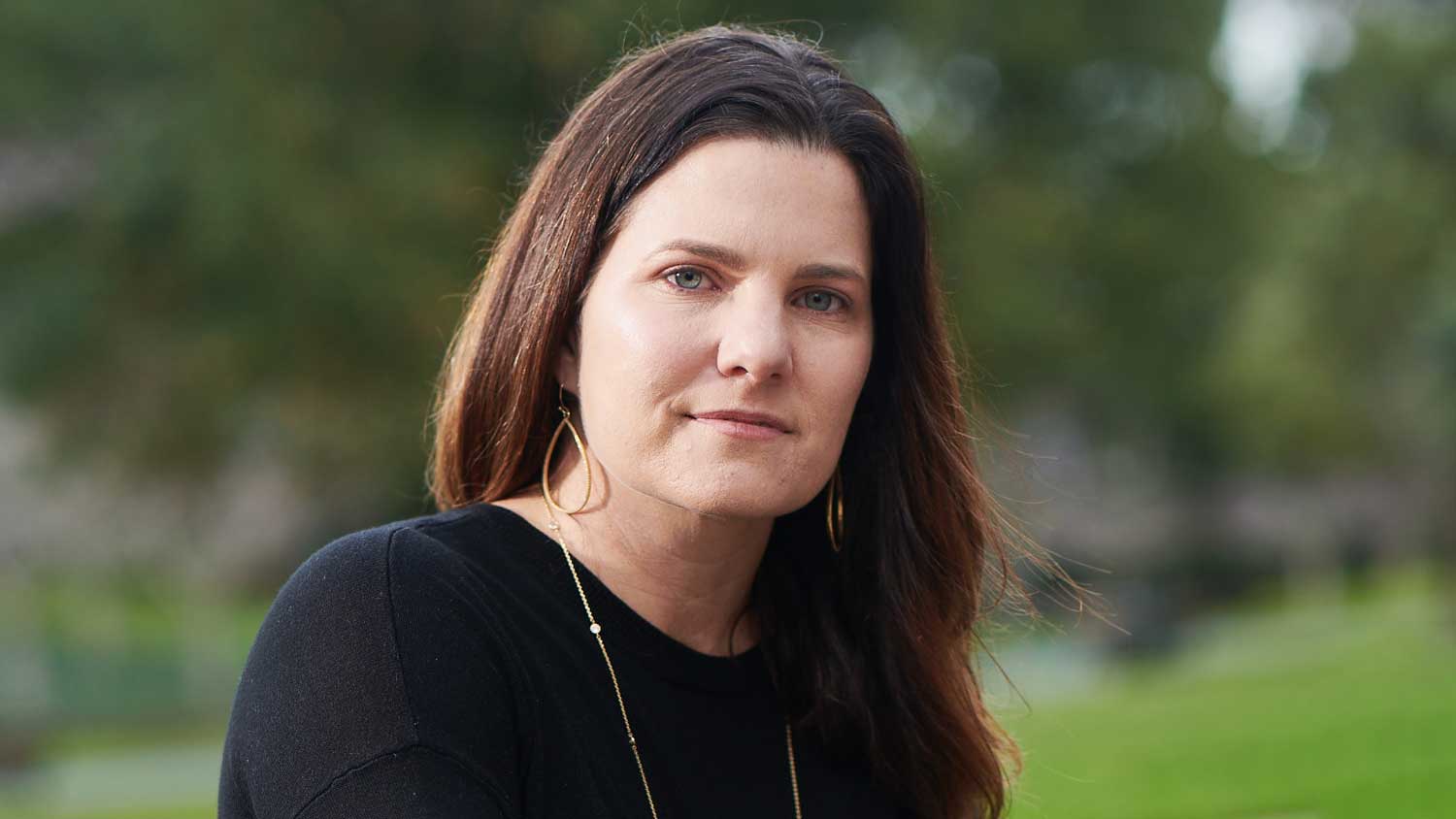
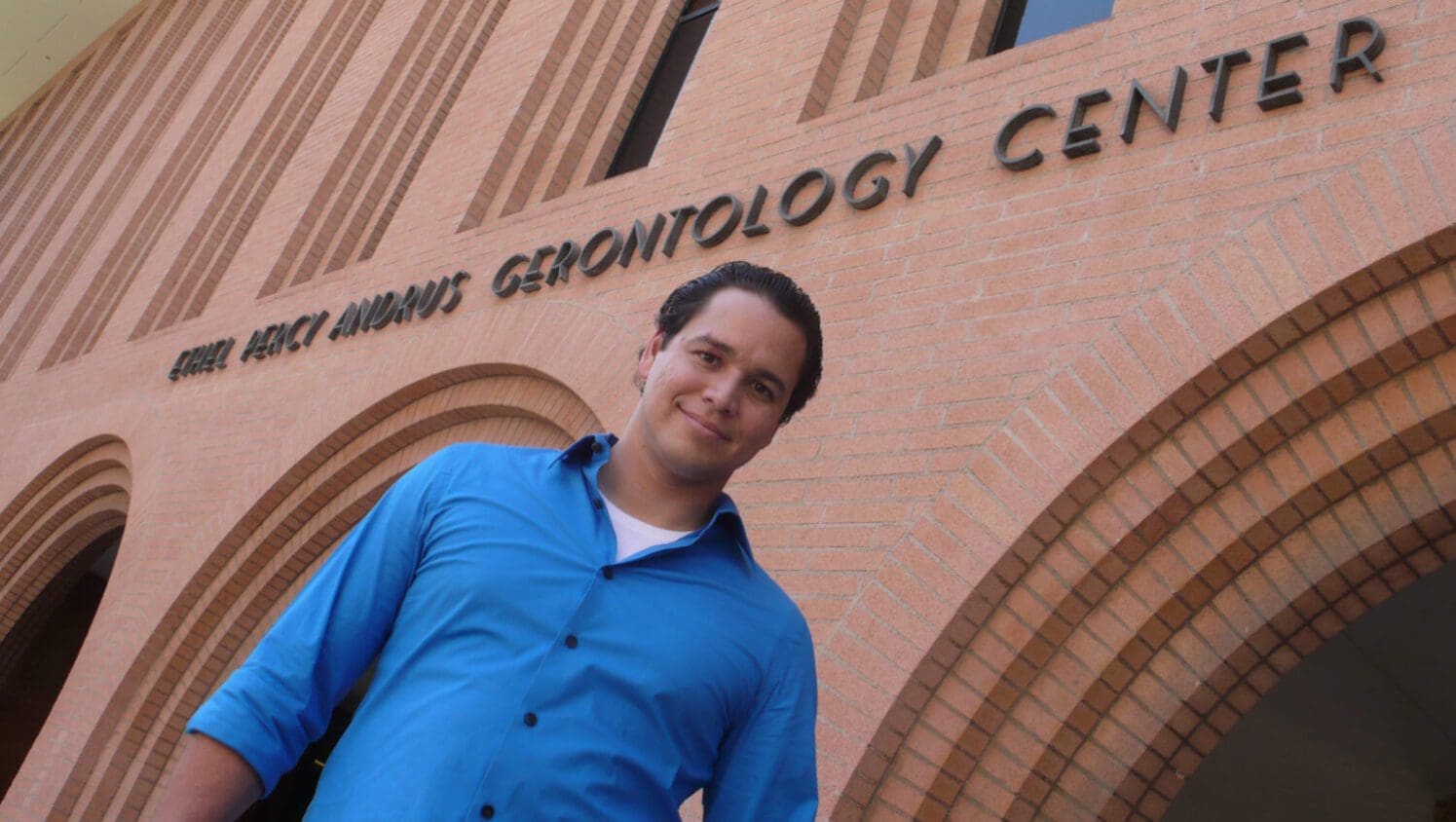

USC Leonard Davis School of Gerontology doctoral student Jeff Laguna (Photo/Trevor Nelson)
While there are many programs to manage pain, many seriously ill patients find that their pain is frequently unrecognized and untreated. While palliative care efforts are documented as an effective intervention, they function best when the caregiver or clinician is attuned as possible to the patient’s varying state. Obviously, this is a challenge for all involved.
“We decided to look at the use of a smartphone to monitor the pain and symptoms of seriously ill patients,” said Jeff Laguna, a USC Leonard Davis School doctoral candidate who worked closely with his advisor, USC Leonard Davis assistant professor Susan Enguídanos. “We wanted to empower patients, caregivers and the palliative care team with the latest technology to give a voice to their needs and how they can be met.”
Utilizing an interdisciplinary approach that involved the USC Leonard Davis School, the USC Viterbi School of Engineering, the USC School of Social Work and HealthCare Partners, Laguna and his team remotely monitored at-risk patients using the smartphone app, ManageMyPain.
The app allowed patients to describe pain characteristics, including intensity, location, character, timing and factors that either aggravated or alleviated the pain. Participants took 5-10 minutes to input their pain on a daily basis, and this data was transmitted to the research team.
“We found several potential barriers, including the ability of participants to use the touch screen successfully, read the font and navigate the phone and app in general,” Laguna said. “These barriers can be frustrating, but identifying them helps us make the app more user-friendly and successful for all potential users.”
By putting this powerful tool literally in the hands of patients, caregivers and the palliative care team, Laguna hopes that other researchers will follow his lead and design more technology for older adults and for all their changing needs. While pain management and palliative care places the focus on end-of-life, the opportunities are there to enhance the quality of life for older adults in every season and state of health.
“Digital aging has the potential to help everyone: older adults who can benefit from increased services and solutions as well as those who care for them and people who are looking to the future and their own aging,” Laguna said. “We found that older adults have an interest in learning new technology, especially if it’s intended to help their care, but there aren’t enough products for them yet. We’re calling for hardware and software innovations so we can best serve this population with this technology, and we’re looking to a wide variety of USC experts to make this dream come true.”